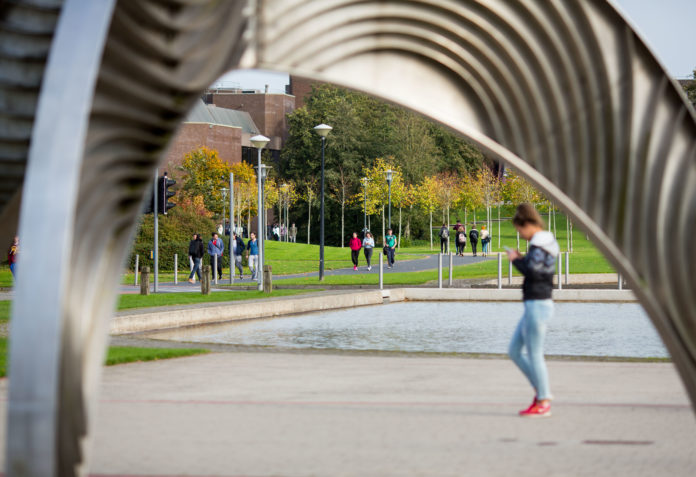
A ROUND of on-campus mass COVID-19 testing is to take place over the coming days at the University of Limerick (UL), to help manage a fresh outbreak of the virus among the student population.
The testing will be carried out by HSE Mid-West Community Healthcare and the National Ambulance Service in partnership with the Department of Public Health Mid West.
Dr Ronan Ryder, Director of the Student Health Centre at UL, said the service referred fewer than five patients for testing this day two weeks ago, but that this rose to 50 yesterday, Monday.
A spokesman for the Department of Public Health Mid West said it “has recorded more than 200 cases associated with the current student outbreak in Limerick since early January, the majority of cases were recorded in the past two to three weeks”.
Dr Ryder said he felt “that the vast majority of the student population have done exceptionally well to protect themselves since Christmas”, however, he added, “when case numbers start to rise, it does take some time to bring them back under control”.
“So, I am encouraging all students in the Castletroy area to avail of testing, and to avoid household visits and socialising so that we can manage this disease in our community,” he added.
“If you are a student in the area, and you are concerned about symptoms or you are a close contact, your first port of call should be the Student Health Centre or your own GP, and the test is free for everybody,” Dr Ryder said.
Students attending the university are advised that “even if phone lines are busy, every student will be accommodated”, and that the service will be open every Saturday and Sunday over the next two weeks to facilitate the increased level of demand.
“This (mass testing) measure is in response to an increase in COVID-19 cases among students in the Castletroy area of Limerick city, associated with household outbreaks in off-campus student accommodation,” said a spokesman for Public Health Mid West.
They spokesman encouraged all students to avail of the mass testing “in order to protect yourself, your household and your community”.
Meanwhile, students who availed of a previous round of mass testing at UL earlier this month “should also register for a test, as infection since being tested is still possible” they said.
“The test is free and you do not need to present with symptoms to avail of it.”
“We have seen evidence of multiple household clusters arising out of continued social mixing. Since the B117 variant has become the dominant strain in Ireland, single cases are escalating quickly to whole households being infected and then quickly spreading to others,” they said.
Dr Marie Casey, a Specialist in Public Health Medicine, said the department had noticed a series of behavioural patterns that are contributing factors to the increase in cases in the area.
She said students have a unique risk profile as they live in large households, travel to and from their family homes, and may have a part-time job.
Because many will present no symptoms, the level of risk “multiplies” when they breach their social bubble or socialise with others outside their household.
There are continued small and larger social gatherings, many of which are being discovered during follow-up calls with cases and their close contacts.
“Our contact tracers are seeing new positive cases identifying an excessive number of close contacts outside their households. This is problematic as, largely speaking, your only close contacts should be your own household,” said Dr Casey.
“We are also noticing that some people are building wider ‘social bubbles’, whereby some people within the same household are exposed to separate social settings, such as visiting partners or classmates.”
“While we are managing an outbreak among the student population, we are seeing similar patterns of inter-household and family outbreaks in housing estates and communities across Limerick and in the Mid-West, which is due to increased levels of social mixing,” Dr Casey said.










